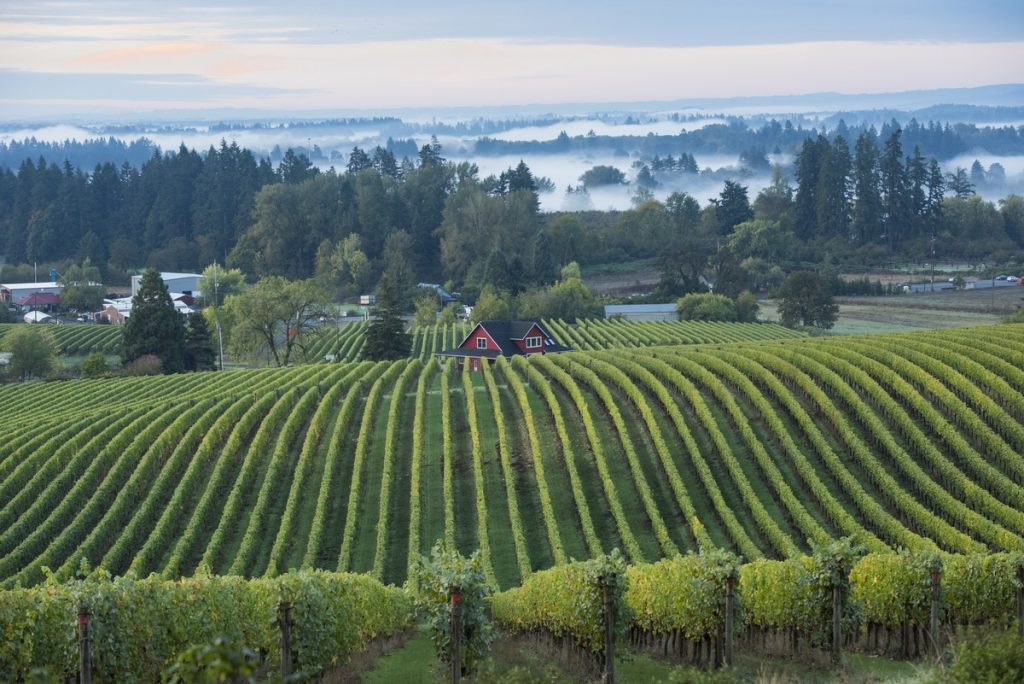Legacy Hill Vineyard is located in the famous Red Hills of Dundee, the premier wine growing area of the North Willamette Valley in Oregon.
Legacy Hill Vineyard is located in the famous Red Hills of Dundee, the premier wine growing area of the North Willamette Valley in Oregon.
The vineyard is closely planted to the French Dijon 777 clones and Dijon clones of Pinot Noir vines which are a perfect match with the Jory soil and cool climate in the Dundee Hills. Facing south, the vineyard ranges from 300 to 400 feet elevation and the soil is native red, well-drained, volcanic Jory type.
Legacy Hill Vineyard is dry farmed, densely planted, skillfully managed and grown to produce low crop yields using sustainable farming procedures. Dry farming allows Legacy Hill Vineyard to grow the highest quality grapes and target low crop yields to encourage intense flavors.
Legacy Hill Vineyard is owned and operated by
Schneider Oregon Farms, LLC. Austin, Texas
Oregon Wine Country in the Dundee Hills

Whether you are a first time visitor or a connoisseur of Oregon wines, no visit is complete without spending some time in the Dundee Hills.
With over 30 wineries, including many of the founders of the Oregon wine community who established this region as a world class area to make Pinot noir, to the rising stars who have made their mark with stellar wines over the last decade, there is always something new to try and learn about the wines of the Dundee Hills.
Arguably the most famous and prestigious of the Willamette Valley AVAs, the mitten-shaped Dundee Hills (romantically embellished, The Red Hills of Dundee) lie just over an hour out of Portland. And indeed, some of the Valley’s most famous vineyards and wineries are here: Domaine Drouhin, Archery Summit, and Argyle, as well as few that are happy to fly under the radar like De Ponte and White Rose. Eyrie started the Willamette Valley wine industry from scratch in the 60s, and Sokol Blosser is the first winery built from the ground up—not from a converted building. Today, 50 vineyards are spread over just under 2000 acres, from 200-1100 feet in elevation. There are 25 wineries, producing over 45,000 cases.
The Red Hills offer up an abundance of fruit flavors, but the high iron content in the volcanic Jory soil makes for an acidic wine—meaning tart, young fruit flavors. This is well-drained, cool clay soil, sometimes full of rocks that look more like the Rhone’s galets than anything else in Oregon (Anderson Family Vineyards, for example)—and it’s red, very red. And although it might be the power of suggestion, there’s a distinctly red fruit character that comes from it. Underneath that red clay is basalt rock, which after a few decades, some of those vines are beginning to reach.
